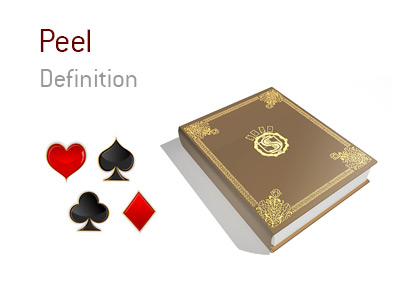Snap Call Poker Definition
Posted By admin On 04/04/22
There are different types of calls in poker parlance: Cold call - to call a raise without having already put any money in the pot. Flat or smooth call - to call bet when one would normally raise, in order to play the hand deceptively. This is a type of slow play. Over call - calling a bet after everybody else still in the hand has called. Online Poker Terms - the most comprehensive Poker Glossary & Poker Term Dictionary developed by the PokerNews experts from all around the World. Following your 4-bet, your opponent pushes all-in and you snap call. Your opponent turns over pocket Aces as well, and you end up splitting the pot. To call in poker simply means to match the existing bet on the current betting round. For example, if our opponent makes a bet of $10 on the flop in Hold’em, calling means that we match the $10 bet exactly. Once a player has called with everything in their chip stack, they are guaranteed to reach a showdown even if the opponent had more chips in his stack.
Snap played with a single pile: two eights in a row is a 'snap' | |
| Type | Matching |
|---|---|
| Players | 2–8 |
| Skills required | Quick reactions |
| Cards | 52 |
| Deck | French-suited |
| Play | Clockwise |
| Card rank (highest first) | A K Q J 10 9 8 7 6 5 4 3 2 |
| Playing time | 5 minutes |
| Random chance | Low-Moderate |
| Related games | |
| Beggar-My-Neighbour, Slapjack | |
Snap is a popular card game in which players deal cards and react quickly to spot pairs of cards of the same rank. Cards are either dealt into separate piles around the table, one per player, or (particularly when played with young children) into a single shared pile.
Gameplay is related to Egyptian Ratscrew. In China, Snap usually refers to the game Slapjack.
The game[edit]
The pack of cards is dealt out among the players in face-down stacks as equally as possible. Play proceeds with the players taking it in turns to remove a card from the top of their stack and place it face-up on a pile alongside it.[1] If two cards on the tops of any of these piles are ever identical (or, if a conventional pack of cards is used, are of the same number), the first player to shout 'Snap!' takes both face-up piles and adds them to the bottom of their own stack. The player who accumulates all the cards wins.
Snap Call Poker Definition Us History
/GettyImages-200494816-001-59e252536f53ba001147928f.jpg)
A 'snap pool' is created from matching stacks if two players shout 'Snap!' at the exact same time, or from a player's own stack if they shout 'Snap!' in error.[1] Players can shout 'Snap pool!' instead of 'Snap!' if the matching cards also match the pool, and may take the pool for doing so. (If multiple players call 'snap pool', the newly matching cards are also added to the pool.)[2]
Variations[edit]
Cards can be played onto a single shared stack, and players call 'snap!' if two consecutive cards on this pile are identical.[1] This makes the game easier for younger children. In this version, players may race to call 'snap' while slapping the central pile, making the game similar to Slapjack.[1]
The game is often one of the first card games to be taught to children and is often played with special packs of cards featuring popular children's characters from television programmes or recent films.
In popular culture[edit]
Snap Call Poker Definition Games
In J. K. Rowling's Harry Potter novels, including Harry Potter and the Goblet of Fire, Harry and his friends sometimes play a game called 'Exploding Snap', in which some of the cards will explode at random during the game.
In the Goon Show, Eccles will yell 'snap', sometimes during a poker game or while on the telephone.
In other cultures[edit]
In Germany and Austria, the game is known as Schnipp-Schnapp or Spitz, pass auf![3]
See also[edit]
References[edit]
- ^ abcd'Rules of Card Games: Snap'. www.pagat.com.
- ^Baierl, Jesse. 'Snap Card Game Rules & Instructions'. Classic Games and Puzzles. Retrieved 9 June 2020.
- ^Gööck 1967, p. 29. sfn error: no target: CITEREFGööck1967 (help)

Literature[edit]
- Gööck, Roland (1967). Freude am Kartenspiel, Bertelsmann, Gütersloh.
